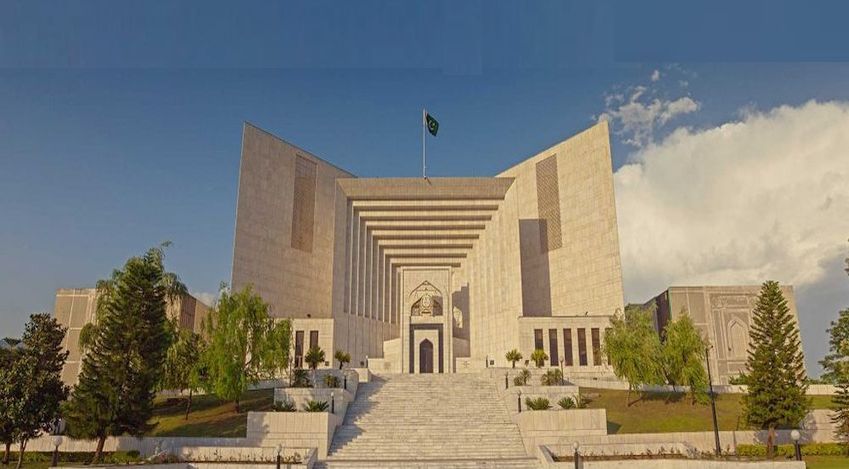A Lawyer’s Actions are Binding on the Client unless Fraud is Proven --- Withdrawn Applications cannot be revived on a mere Change of Stance --- Supreme Court of Pakistan
Islamabad 30-01-2025: The Supreme Court of Pakistan has dismissed [Civil Petition No. 2759-L of 2023], upholding the decisions of the Lahore High Court and the Appellate Court, which refused to set aside an ex parte decree in a family law dispute involving dissolution of marriage and recovery of dower.
The case originated when Respondent No. 3 (the wife) filed a suit for dissolution of marriage and recovery of dower before the Family Court, Hafizabad. The Petitioner (husband) failed to contest the suit, leading to an ex parte decree on March 12, 2021, under Section 10(5) of the Family Courts Act, 1964. The decree granted prompt dower but did not address the deferred dower explicitly mentioned in the Plaint.
Upon the wife’s request for review, the Family Court partially decreed the deferred dower on March 30, 2021. Dissatisfied, both parties filed appeals before the Appellate Court, while the petitioner also attempted to set aside the ex parte decree.
The Petitioner initially filed an application to set aside the ex parte decree but withdrew it on April 2, 2022. Later, he attempted to recall the withdrawal, claiming that his counsel acted without instructions. The Family Court dismissed this application on July 20, 2022, and the Appellate Court upheld the dismissal.
In parallel, the Petitioner also filed a suit for cancellation of certain entries in the Nikahnama (marriage contract) on May 27, 2021, which remains pending. The Lahore High Court dismissed the Petitioner’s Writ Petition on July 21, 2023, prompting the current appeal before the Supreme Court of Pakistan.
In its detailed judgment, the Supreme Court of Pakistan rejected the Petitioner’s arguments, citing key legal principles:
- The Court held that the Petitioner, by withdrawing his challenge to the ex parte decree, had waived his right to contest it further. The withdrawal implied acceptance of the decree, and he could not later attempt to revive his challenge.
- The Court emphasized that an advocate’s actions are binding upon the client unless there is explicit fraud or a restriction in the Wakalatnama (Power of Attorney). The Petitioner’s attempt to disown his lawyer’s decision to withdraw the application was rejected.
- The Appellate Court had thoroughly reviewed the trial Court’s decision and found no legal error. The Supreme Court of Pakistan reaffirmed that it does not interfere unless there is a clear miscarriage of Justice.
- Finding no illegality in the Lahore High Court and Appellate Court’s decisions, the Supreme Court of Pakistan refused to grant leave to appeal and dismissed the petition.
The petition was dismissed, and leave to appeal was refused, confirming the ex parte decree’s validity. This decision reinforces the principle that litigants cannot challenge a decree once they voluntarily withdraw their objections.
The judgment relied on several precedents, including:
- Fateh Khan Vs. Manzoor (PLD 1993 Lahore 76) – Counsel’s authority under a Wakalatnama is binding.
- Noor Muhammad Vs. Muhammad Siddique (1994 SCMR 1248) – A lawyer’s discretion in litigation is presumed valid.
- Hassan Akhtar Vs. Azhar Hameed (PLD 2010 SC 657) – Advocates can compromise or abandon claims unless restricted.
This decision sets a strong precedent on litigants’ accountability for their legal representatives’ actions and prevents abuse of procedural remedies. It reinforces that withdrawn applications cannot be revived on a mere change of stance.
Powered by Froala Editor








